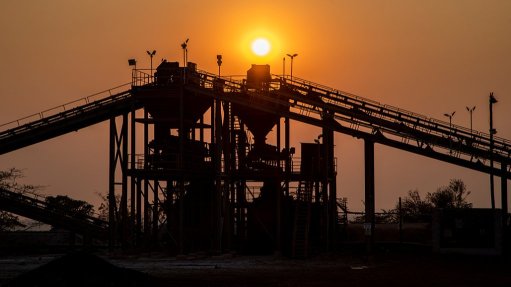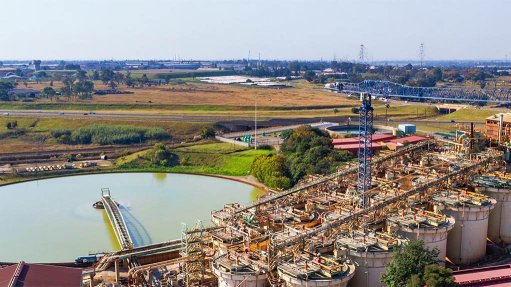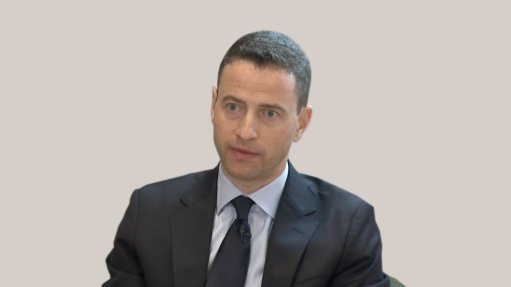Agriculture, mining remain growth areas for Omnia, despite difficult operating environment
JSE-listed chemicals group Omnia has reported a 10% decrease in operating profit to R1.7-billion for the financial year ended March 31, saying this reflected volatile market conditions and global economic strain.
Net profit, however, increased by 1% to R1.16-billion, while earnings a share increased by 2% year-on-year to 705c.
Headline earnings a share decreased by 6% to 699c.
The company maintained its ordinary dividend at 375c apiece for the year, on par with the distribution of the prior year, and declared a special dividend of 325c apiece. The total distribution to shareholders amounts to R1.15-billion for the year under review.
CEO Seelan Gobalsamy says Omnia demonstrated resilience and strategic agility in the year under review by generating strong cash flows of R3-billion – a 67% year-on-year increase – and improving margins. He assures shareholders that the company maintained profitability despite a challenging macroeconomic environment.
COO Tiaan Kotze adds that the company has experienced volatile market conditions and a substantial decline in commodity prices, but ongoing disciplined capital allocation and increased geographic diversification have helped to offset these impacts.
Some of the global factors impacting on the group’s results include persistent inflation, tightening monetary policies by central banks, geopolitical tensions that impact on supply chains and changing weather patterns that disrupted agriculture, infrastructure and water resources.
Omnia’s mining segment performed exceptionally well, with Omnia noting increased exploration budgets and activities in the regions in which it operates, particularly in green and battery minerals. Gobalsamy is optimistic about continued growth in the mining explosives market.
Omnia operates in the Indonesian, Canadian, Australian and African markets.
The company is diversifying its business through growing the contribution of the mining segment locally and internationally. In the period under review, Omnia focused on strengthening its integrated manufacturing and supply chain capability, which enabled more responsiveness in key customer markets. Omnia was able to maintain security of supply for customers and optimised inventory levels in the year under review.
To sustain optimal inventory level and manage ongoing risks associated with commodity price fluctuations, Omnia reduced its working capital from R4.2-billion in the prior year to R3.6-billion in the reporting year.
The group added 20 ammonia rail wagons to its existing fleet of 185, as well as six ammonia road tankers, to enhance its supply chain flexibility.
The chemicals segment was acutely impacted by tough trading conditions in South Africa, owing to persistent loadshedding, infrastructure inefficiencies and sustained high inflation. Gobalsamy says consumers and businesses have dampened growth prospects, particularly in the manufacturing and construction sectors.
He points out that the South African mining sector is also negatively impacted on by low investment levels and rail and port challenges, especially the bulk commodities such as iron-ore and coal.
The lower commodity prices in the year under review led to a revenue decline of almost 16% to R21-billion in the year, with lower volumes recorded mostly in the chemicals segment.
Omnia’s agriculture operations, however, helped to offset the impact of lower prices in the chemicals segment, with the global agriculture market having demonstrated resilience with increased crop production, rising income levels, technological advancements and favourable government policies aimed at ensuring food security.
The company’s net cash position sits at R2.3-billion – a 27% increase compared with the prior financial year.
Omnia spent more than R1-billion in the year under review on its international expansion efforts, environment, social and governance initiatives, and its core operations.
The company also managed to increase its operating margins by 4.4% to 8% in the year under review, driven by a higher contribution from the mining segment. The mining segment alone recorded a margin improvement to 12.1%, compared with 9.3% in the prior year, while the agriculture segment had margin improvements to 8.7%, compared with 8.5% in the prior year.
GROWTH PROJECTS
Omnia invested R713-million in capital and organic growth projects in the year under review, including R184-million in its Hypex Bio venture and R175-million into its Indonesian joint venture (JV), respectively.
The Hypex Bio team is dedicated to deploying infrastructure, scaling up operations, enhancing organisational capabilities and developing a portfolio of new projects. “We remain on track for initial trials of this product at our Nairn facility, in Canada, in the latter part of the 2025 financial year,” Kotze states.
Additionally, the company’s JV with PT Multi Nitrotama Kimia, in Indonesia, has resulted in three new contracts, with more being pursued with leading metal mines.
The company is also investing in renewable energy, and reverse osmosis water treatment plants to enhance water efficiency and reduce non-recyclable greywater production.
The group increased its solar generation output to 12 976 MWh in the year under review, compared with 4 911 MWh of solar generation output in the prior year.
The mining segment is increasing its presence in key markets such as West Africa, Canada, Indonesia and Australia and Omnia is deploying a detonator assembly plant in Western Australia, with production expected to begin in the second half of the 2025 financial year.
OUTLOOK
Looking ahead, Omnia expects the global economic recessions to ease in the new financial year, but the macroeconomic environment will nonetheless remain challenging, particularly as 2024 stands out as the biggest election year in history.
More than 50 countries are hosting elections this year, which typically introduces increased market volatility owing to policy uncertainty.
Kotze and Gobalsamy are, nevertheless, positive about the outlook for the company’s agriculture and mining markets, which are underpinned by strong fundamentals.
The group remains focused on increasing plant utilisation and supply planning, as well as efficient working capital management.
Article Enquiry
Email Article
Save Article
Feedback
To advertise email advertising@creamermedia.co.za or click here
Announcements
What's On
Subscribe to improve your user experience...
Option 1 (equivalent of R125 a month):
Receive a weekly copy of Creamer Media's Engineering News & Mining Weekly magazine
(print copy for those in South Africa and e-magazine for those outside of South Africa)
Receive daily email newsletters
Access to full search results
Access archive of magazine back copies
Access to Projects in Progress
Access to ONE Research Report of your choice in PDF format
Option 2 (equivalent of R375 a month):
All benefits from Option 1
PLUS
Access to Creamer Media's Research Channel Africa for ALL Research Reports, in PDF format, on various industrial and mining sectors
including Electricity; Water; Energy Transition; Hydrogen; Roads, Rail and Ports; Coal; Gold; Platinum; Battery Metals; etc.
Already a subscriber?
Forgotten your password?
Receive weekly copy of Creamer Media's Engineering News & Mining Weekly magazine (print copy for those in South Africa and e-magazine for those outside of South Africa)
➕
Recieve daily email newsletters
➕
Access to full search results
➕
Access archive of magazine back copies
➕
Access to Projects in Progress
➕
Access to ONE Research Report of your choice in PDF format
RESEARCH CHANNEL AFRICA
R4500 (equivalent of R375 a month)
SUBSCRIBEAll benefits from Option 1
➕
Access to Creamer Media's Research Channel Africa for ALL Research Reports on various industrial and mining sectors, in PDF format, including on:
Electricity
➕
Water
➕
Energy Transition
➕
Hydrogen
➕
Roads, Rail and Ports
➕
Coal
➕
Gold
➕
Platinum
➕
Battery Metals
➕
etc.
Receive all benefits from Option 1 or Option 2 delivered to numerous people at your company
➕
Multiple User names and Passwords for simultaneous log-ins
➕
Intranet integration access to all in your organisation





















